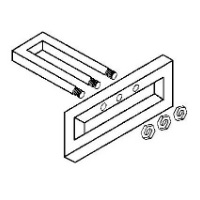The Star Trek Harry Mudd spin-off that never was
The intergalactic con man almost got his own Star Trek series

Harry Mudd is a beloved Star Trek universe icon known for being a human rogue and trader/smuggler. In the series, Mudd disappeared with his fiancée's dowry during the Federation-Klingon War. Later he shared a prison cell with Captain Gabriel Lorca and Lt. Ash Tyler.
Mudd was played by Roger C. Carmel.
Although Star Trek fans know him as Harry Mudd, Carmel almost had another big opportunity within the universe.
In the late '60s, NBC expressed interest in giving Carmel his own spin-off. The network wanted to develop a "space-pirate, intergalactic con-man sort of thing." Which leaves many fans wondering what could have been with a description as catchy as that.
The idea was put to rest when the creator of Star Trek, Gene Roddenberry, turned down the offer when he was too busy working on the flagship series.
Although the idea was floating around in Roddenberry's mind, Carmel wasn't aware of the idea until later. During a past interview with Carmel he said, "You couldn't blame Gene, he didn't want to let somebody take it off in a direction he didn't approve of. Since he didn't have time to handle it all, the Mudd series project died."
There was another plan that never came to see the light of day: put Mudd in Star Trek IV: The Voyage Home. Unfortunately, Carmel fell in poor health and eventually passed away in November of 1986.
Fans can only wonder what would have been with the spin-off and how the series would have portrayed the space-pirate, intergalactic con-man. Despite the missed opportunity, Mudd left a legacy among Star Trek fans for the roles he did play.
Would you have watched a Harry Mudd spin-off?

54 Comments

https://www.facebook.com/DickVanDykeShowBook/videos/sci-fi-saturday-night-ed-mccready-1930-2002-this-face-in-the-mirror-which-i-cp-h/1618383798186014/
No wonder so many commentators don't remember Harry from this description.
"NBC was disappointed by the mediocre ratings of The Mothers-In-Law (1967), and almost canceled it. It picked the show up for a second season after rival network ABC expressed interest in the show, but NBC informed Arnaz that they would not give any additional money for the show. Traditionally, salaries are increased when a TV show is picked up for a new season, and all the actors' contracts specifically called for raises in the event of renewal. Arnaz, who was also producer, director, and writer, called together the cast and crew and told them that although the series had been renewed, there was no money for salary increases.
"According to Carmel's own recollection, Arnaz was already drawing down multiple salaries on the program, and would shortly cast himself as a supporting character in the series, thus drawing another salary, although Carmel didn't know that at the time. Arnaz elicited a promise from the creative people, the crew and the actors to forgo salary increases to keep the show on the air. All the actors agreed but one. Carmel told Arnaz he would quit unless he received a raise, as per his contract. In a contemporaneous account of the incident, Carmel said, "Desi called me and put it on a personal basis. I didn't feel it should be done that way - it was very unfair of him. Then Desi and the Morris Agency threatened I would be replaced. Kaye Ballard and Eve Arden also called me and asked me to go along, but I wouldn't."
"Arnaz's response to Carmel's ultimatum was dismissive. "Where else is he going to make two thousand dollars a week?", the producer asked rhetorically. If Arnaz's Desilu production company gave in to Carmel, it would be faced with giving all the cast members a raise, which was financially unviable with the money on offer from NBC. Arnaz was forced to terminate Carmel, who was replaced by Richard Deacon for the second season. The show had poor ratings and was canceled following its second season."











































-1.jpg)


